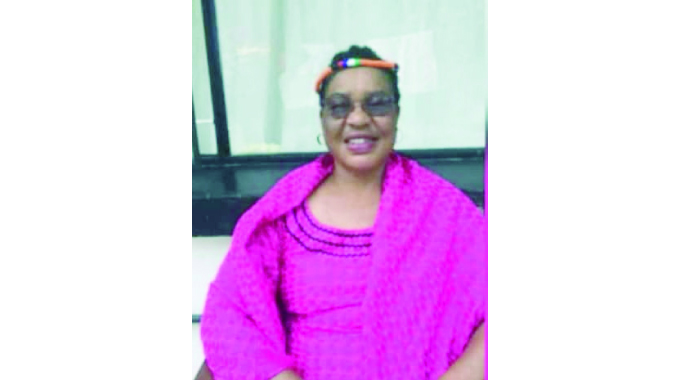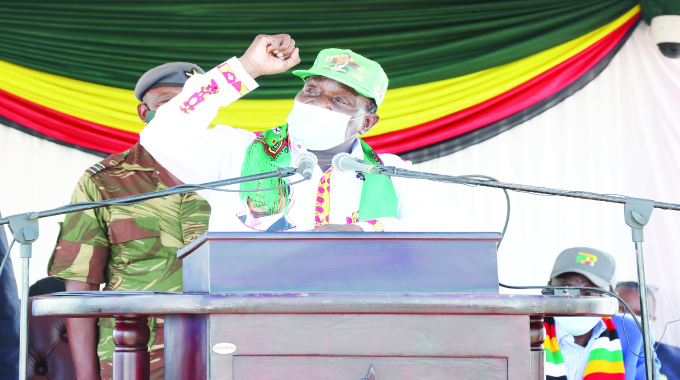Independence: Decolonising resource exploitation

Yoliswa Dube-Moyo, Matabeleland South Bureau Chief
RESOURCE exploitation in pre-independence Zimbabwe was a reserve of the white settlers but the extraction of the resources was done by the blacks who owned the land and by extension the resources through forced and free labour in the mines and farms.
Cheap labour in the mines became intense following the promulgation of the Mines and Minerals Act to promote the growth of the mining industry.
Mining and agriculture were the leading primary industries, with mining contributing more revenue until 1945 when it was replaced by agriculture.
Back then, blacks were viewed as lesser human beings and white settlers believed in their superiority.
Black men toiled in the mines with no real returns for their labour. They were low level employees and did not hold management roles.
It was not until the country attained its independence from white minority rule in 1980 that blacks started to have access to mining concessions and rising to manage mines and conglomerate mining operations.
For women, venturing into economic spheres, let alone mining, which was largely considered a man’s world, was a distant dream as they were equated to children.
“Women were not considered as capable adults. They couldn’t even access identity documents on their own but independence brought about equal opportunities for women.
Mining was largely considered to be for men but women can now also venture into mining and work for their families,” said Mthandazo Women Miners Association chairperson, Ms Sithembile Ndlovu.
She said women can now run their own mining operations and employ other people. “Now we can be directors and employ people.
That would’ve never happened in Rhodesia. Opportunities have been availed to us and we only need to work hard to achieve our goals,” she said.
Ms Ndlovu, who is also the Zimbabwe Miners Federation Matabeleland South Chapter Women Affairs Secretary said the woman’s place is no longer in the kitchen.
“Back then, women were told that their place was in the kitchen and to bear children. We would hear stories of women killing their husbands when they were about to retire so that they could have access to their pension.
But nowadays, we don’t even look at our husbands’ salaries because we have an opportunity to make our own money through mining,” she said.
“Now women can walk into a car dealership and buy themselves a car without the assistance of a man. That would’ve never happened in pre-independent Zimbabwe.
Women’s rights are now recognised and we’re happy that we’re now considered equals.” She said women were now free to lay out goals and set out to achieve them.
“You’d find that women would come up with ideas and share them with their husbands who would be positioned to implement them but now as a woman, you can come up with an idea and run with it yourself.
Children now respect their mothers because they know that they contribute to the family economically,” she said.
Gwanda District sits on the Greenstone gold belt which hosts notable gold producers including Blanket, Vumbachikwe, Jersey, Freda and Horn Mines.
Various mining concessions have been awarded to individuals, companies and mining associations in the province.
The Entabeni Mining Concession in West Nicholson has under it registered artisanal small-scale miners.
Former Insiza South MP and businessman Mr Malachi Nkomo, who supervises mining operations under the Entabeni Mining Concession, said locals were now benefiting from mining in the area.
He said their operations were registered with the mining regulatory authorities and the gold they get goes to Fidelity Printers.
“We keep records of all the gold that is extracted from the mountain and sold to Fidelity Printers and I’m happy that we’re also contributing to the economy in our own small way.
The population of people looking for gold in this area could be 1 000-plus. Gold mining has kept us going and resulted in the growth and development of Mbembesi,” said Mr Nkomo.
Using gains from the mining operations, he said, plans were afoot to start other self-help projects to benefit youths within the district.
He said he was grateful to the Government for the land redistribution exercise which paved the way for the Mbembesi peri-urban centre as people are now able to set-up businesses in such areas.
“This area used to be Rogers’ (a white farmer) farm and during the land redistribution exercise, it was gazetted and allocated as a resettlement area.
Since there were no shops, people asked for space to put up supermarkets and bottle stores. At West Nicholson, there was an issue of title deeds such that it was problematic for the area to expand.
It was then discovered that this place (Mbembesi) had available space where people could build. There was a scramble for land and people started building shops.
If you look on the other side where Rogers’ houses are, it’s a sad situation as people can’t expand their houses; that’s where you see the beauty of the land redistribution exercise.
We’re grateful to the Government for redistributing land because people are now able to set-up businesses in such areas. They also put-up cottages behind their shops so that they have accommodation as residential stands are a challenge here,” said Mr Nkomo.
He said locals were hopeful that as time goes on, residential stands will be availed. Before independence, white settlers owned multiple vast tracts of fertile land with blacks relegated to the reserves.
“Most of the land here is State land. A housing cooperative has been formed and we hope once it’s approved, people will be able to build their homes.
West Nicholson has no industry, everyone who lives here survives on mining activities. At any given time, for you to process your gold, you need diggers, who can be around 15.
You’ll also need loaders, that’s another number of people. You will also need people to offload the sacks and they charge R3 for one sack, so if you have 1 000 sacks, imagine how many people you would need to offload.
There are also women who will be selling drinks close to the people offloading the sacks. So, everyone is benefiting from the mining activities here,” said Mr Nkomo.
Mbembesi’s potential to grow cannot be understated as it provides a downstream chain which sustains itself, thanks to black empowerment policies which followed the country’s independence. – @Yolisswa.








Comments